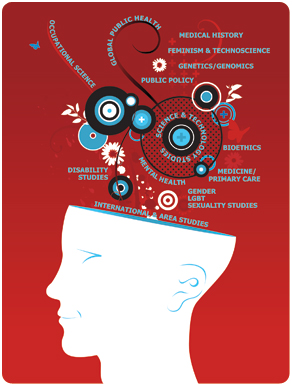
The Society for Medical Anthropology (SMA) of the American Anthropological Association held an international conference, “Medical Anthropology at the Intersections: Celebrating 50 Years of Interdisciplinarity,” at Yale University from September 24-27, 2009.
It brought together more than 1,000 medical anthropologists and related scholars and practitioners from around the world to discuss the importance of medical anthropology as a growing global discipline in the new millennium. The Whitney and Betty MacMillan Center for International and Area Studies at Yale was the major sponsor of this event. The National Science Foundation (Cultural Anthropology Program) and the National Institutes of Health were conference cosponsors.
This conference showcased past research, and generated new research plans and collaboration within and between key fields where some of the most exciting interdisciplinary work in medical anthropology is emerging. More than a dozen plenary presentations by renowned medical anthropologists highlighted these key areas of intersection. Speakers included Paul Farmer (Harvard) on medicine/primary care; Didier Fassin (Princeton) on global public health; Arthur Kleinman (Harvard) on mental health; Lynn Morgan (Mt. Holyoke) on medical history; Emily Martin (NYU) on feminism and technoscience; Annemarie Mol (University of Amsterdam) on science and technology studies; Margaret Lock (McGill) on genetics/genomics; Barbara Koenig (Mayo Clinic and University of Minnesota) on bioethics; Merrill Singer (University of Connecticut) on public policy; Gelya Frank (USC) on occupational science; Rayna Rapp (NYU) on disability studies; Richard Parker (Columbia) on gender/sexuality/LGBT studies; and Lawrence Cohen (UC-Berkeley) on international and area studies. Video of these plenary talks is available on the conference Web site, www.yale.edu/macmillan/smaconference, and an edited volume comprised of expanded versions of these presentations is forthcoming.
The conference also included more than 100 panel discussions, featuring research on medical anthropological topics ranging from the health consequences of war, to the anthropology of global health, to the social effects of chronic illness and disability. Medical anthropology’s compassionate response to problems such as HIV/AIDS, maternal and child mortality, mental illness and drug addiction, and many other pressing health issues was a major theme of many sessions. Almost 200 scholars presented a range of path-breaking research at a conference poster session, demonstrating the ways that medical anthropologists are generating key knowledge to overcome contemporary health problems. Finally, the conference’s two social eventsc a world music dance party and a semi-formal “Medical Anthropology Ball” – showcased the conviviality of this important anthropological subfield.
